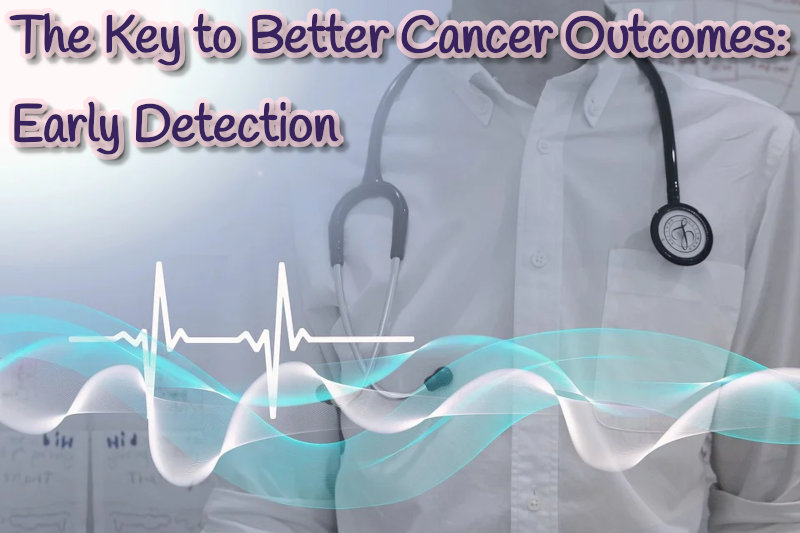Early Detection: The Key to Better Cancer Outcomes

September 18th, 2024 | Cancer
The Importance of Early Detection
Early diagnosis of cancer is essential to improving cancer outcomes. When cancer is identified in its early stages, when it isn’t that large and hasn’t spread to other parts of the body, cancer is easier to treat and thus prognosis is more positive. Additionally, early detection can help to reduce the costs associated with treatment. Treating advanced cancer can be incredibly expensive, because it usually requires complex, prolonged, and aggressive treatment modalities.
Let’s take breast cancer, for example. When diagnosed early in the localized stage, meaning the cancer has not spread to other parts of the body, the five-year survival rate is as high as 99 percent (1). This survival rate is much higher than when breast cancer is detected in the later stages.
Common methods of early detection
There are several ways to identify cancer in its early stages. This can be done through screening programs, which aim to catch the cancer before you ever start experiencing symptoms. Some common screenings include:
- Mammograms. Mammograms are X-rays of the breast that are used to screen for breast cancer.
- Colonoscopies. During a colonoscopy, a colonoscope is placed into the rectum. This procedure allows your doctor to remove tissue from the colon to later screen it for signs of disease or cancer (like colorectal cancer).
- Pap smears and HPV testing. Pap smears are procedures that gently take cells from the surface so that they can be evaluated for cell changes and cervical cancer. It can also be done simultaneously in checking for types of human papillomavirus (HPV) (2).
Other types of screenings can be done outside of the doctor’s office and involve self-examination. For example, routine breast self-exams can help women identify changes to their breasts, and skin checks can help you find abnormal growths or moles that may indicate skin cancer.
In addition, some individuals may be candidates for genetic testing, which is particularly helpful for those that have a family history of cancer. Certain genetic mutations increase your likelihood of cancer, such as with BRCA1 and BRCA2 for breast and ovarian cancer.
Challenges and barriers to early detection
Several challenges may hinder one’s ability to achieve a timely diagnosis, including:
- Lack of awareness. Many people don’t understand the importance of regular screenings or know that they can do self-examinations such as breast or skin checks at home.
- Access to healthcare. Disparities in healthcare quality mean that some people don’t have accessible healthcare for early detection. This can delay diagnosis, leading to poorer outcomes.
- Fear and stigma. The fear of receiving a cancer diagnosis may be so overwhelming that some avoid screening altogether.
References
- https://www.nationalbreastcancer.org/early-detection-of-breast-cancer/
- cancer.gov/about-cancer/screening/patient-screening-overview-pdq
Recent Posts
- Vegan and Vegetarian Nausea Relief: Best Plant-Based Remedies and Tips for 2025
- Essential Packing List for Pregnant Travelers 2025 | Comfort, Health & Safety Guide
- Natural Ingredients for Pregnancy Nausea Relief: Safe Morning Sickness Tips for 2025
- Do Allergies Cause Nausea? How Allergy Symptoms Affect Your Stomach in 2025
- First Trimester Morning Sickness Relief: Expert Tips to Ease Nausea in 2025
Categories
- All-Natural (4)
- Blog (47)
- Cancer (69)
- Diet (14)
- Holidays (20)
- Lifestyle (64)
- Motion Sickness (39)
- Nausea (73)
- New Mothers (33)
- Oncology Testimonials (3)
- Prebiotics (1)
- Preggie Products (6)
- Preggie Testimonial (23)
- Pregnancy (132)
- Queasy Products (8)
- Queasy Testimonial (16)
